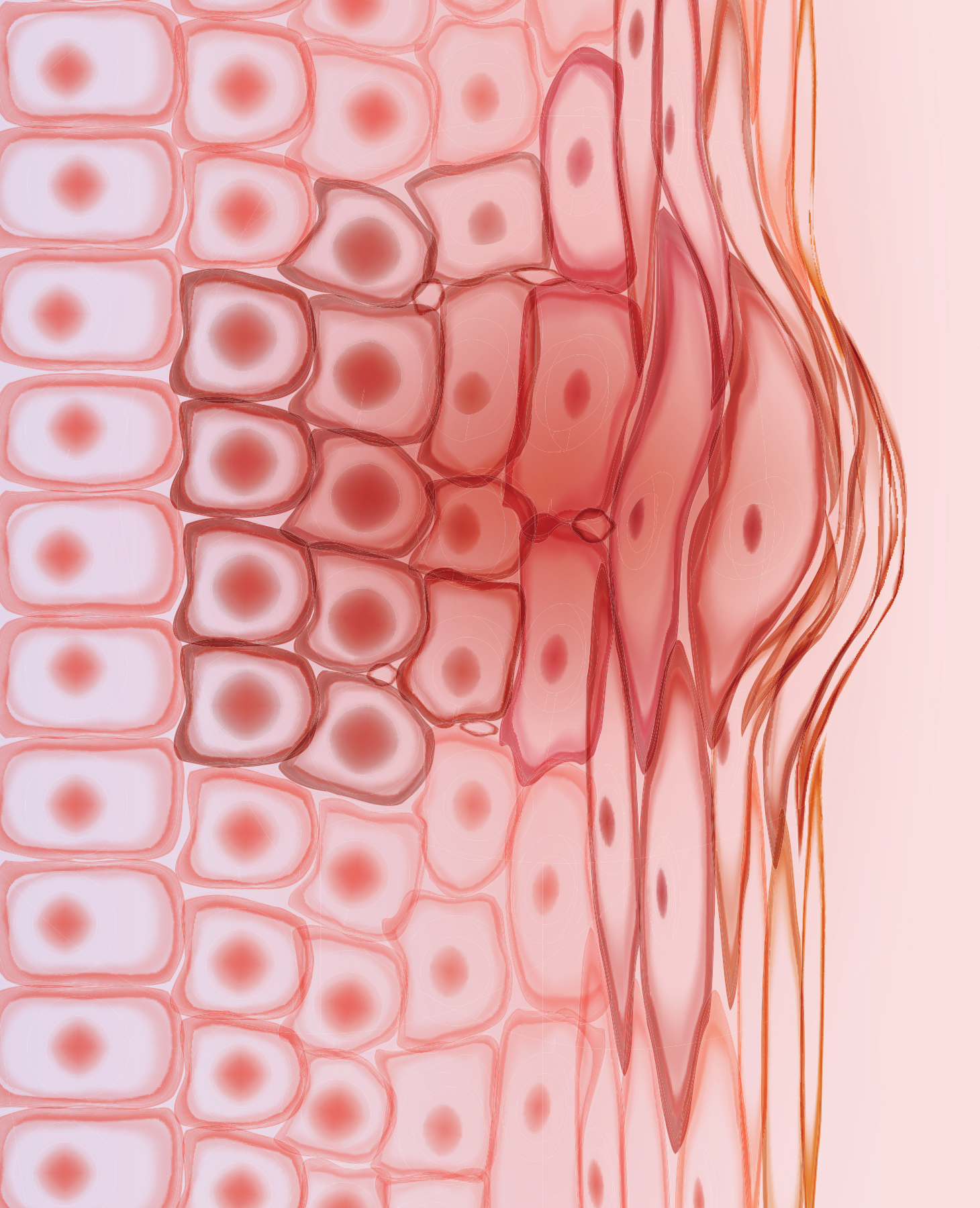 Melanoma cancer cells as they appear in a cross section of the skin.
Melanoma cancer cells as they appear in a cross section of the skin.
The so-called MAPK signaling pathway regulates cell proliferation by transmitting chemical signals to cells’ nuclei from outside the cells. Ten percent of all human cancers and half of all metastatic melanomas result from mutations in BRAF, a gene that codes for the protein BRAF in the MAPK pathway. By far the most common melanoma BRAF mutation is BRAFV600E—a single-nucleotide mutation that causes glutamic acid to substitute for valine in the BRAF protein.
The U.S. Food and Drug Administration (FDA) has approved several BRAF-inhibiting drugs for treating tumors possessing the BRAFV600E mutation. Unfortunately, nearly all tumors eventually develop resistance to the drugs. A principal reason is reactivation of the MAPK pathway, which induces BRAF to form drug-resistant dimers (two BRAF molecules linked together).
A study published in September 2020 in Nature Communications by Evripidis Gavathiotis, Ph.D., and colleagues describes a drug that shows promise for inhibiting BRAF dimers. The researchers designed a BRAF-dimer inhibitor based on the molecular structure of a drug called Ponatinib, approved by the FDA for treating chronic myelogenous leukemia. Since BRAF dimers encourage melanoma tumors to develop drug resistance, this BRAF-dimer-inhibiting drug may help extend the lives of melanoma patients.
Dr. Gavathiotis is a professor of biochemistry and of medicine at Einstein.